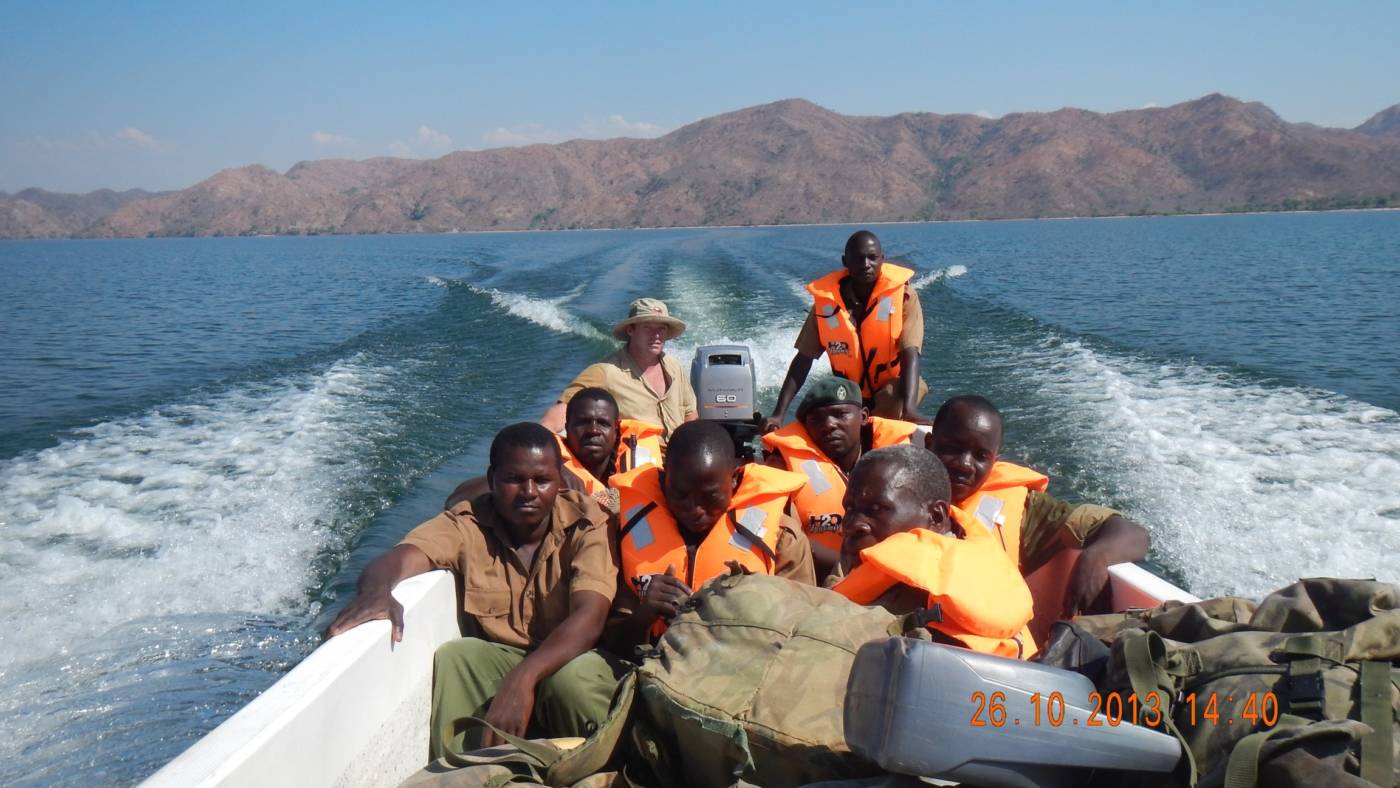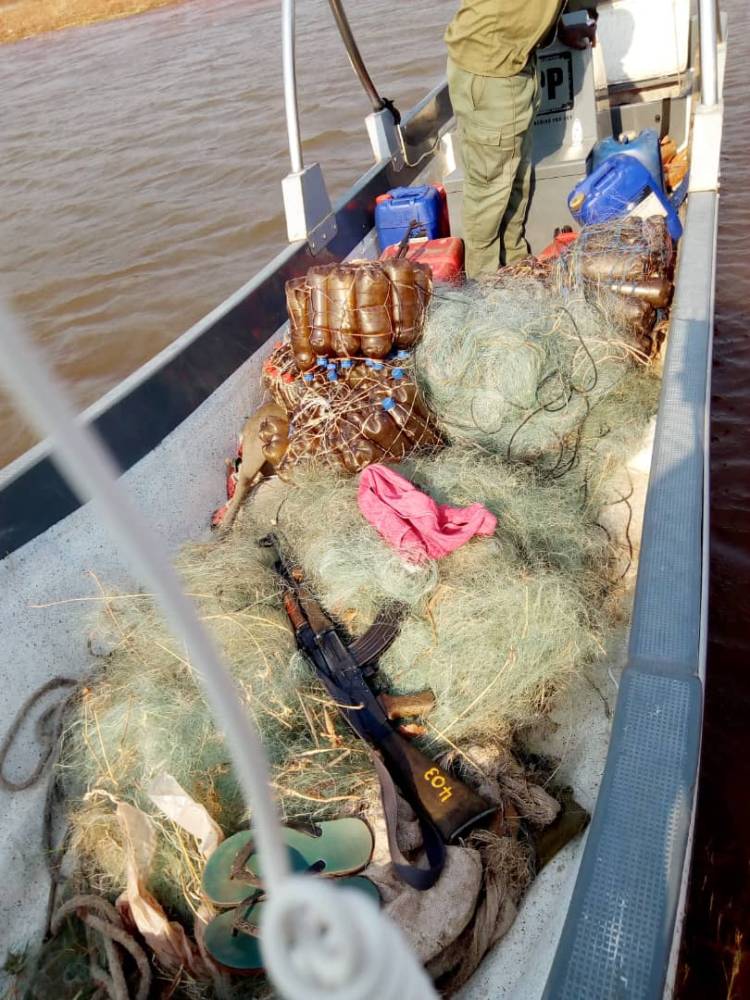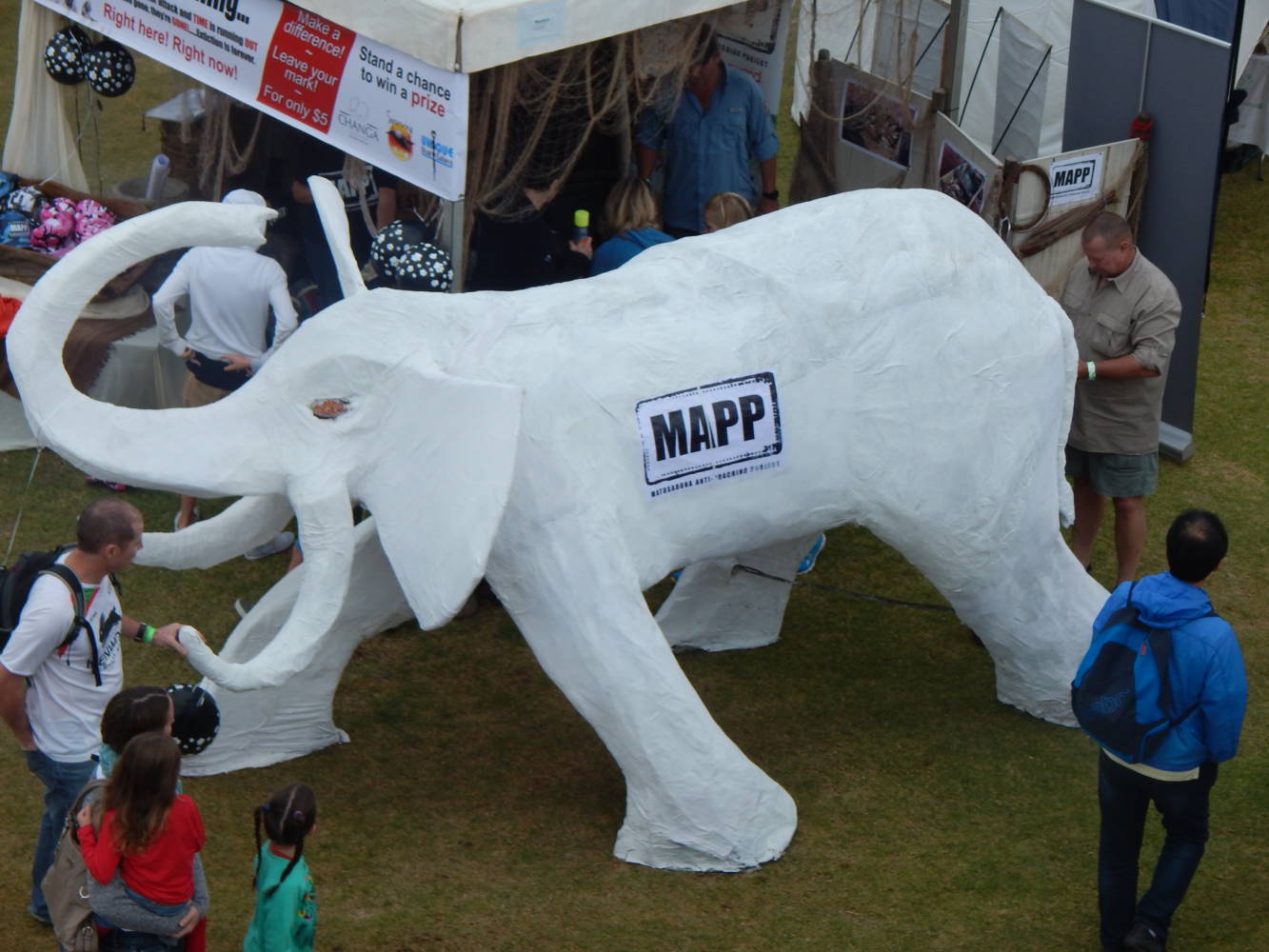From 2013 to 2019, the dedicated efforts of the Matusadona Anti-poaching Project (MAPP) secured threatened elephant and fish populations in Matusadona and the greater Kariba area. The Zambezi Valley Conservation Network shares an overview of the achievements as well as the strategies and enablers that led MAPP to become one of Zimbabwe’s most successful anti-poaching support operations to Zimbabwe Parks and Wildlife Management Authority.

Between 2013-2019, MAPP successfully held down the fort to protect fish and wildlife resources in the Matusadona National Park and greater Kariba area. In 2019, Matusadona anti-poaching operations were gratefully handed over to African Parks.
In March 2013, operators of the newly developed Changa Safari Camp, Kevin Higgins and Angus Preston responded to a fish poaching crisis prevalent in the Eastern basin of Lake Kariba, including the Sanyati River system. “What was once a fisherman’s haven, became a complete no-go zone,” says Higgins, who led MAPP operations up until 2019. A small patrol unit was quickly mobilised with the support of Spurwing management, the Tashinga Initiative and regional National Parks authorities, who at that point were logistically incapacitated without a boat or vehicle to cover an area of 380,000 acres.
While the on-water patrol proceeded effectively, leading to arrests and many kilometres of fishing nets retrieved, Higgins discovered another threat looming on land. “I was guiding a group of camp visitors when we came across an old bull that had been poached. Soon after that on another walk we came across four more elephant carcasses, and that’s when I realised we had another crisis on our hands,” Higgins recalls.
By the end of 2013, a substantial anti-poaching initiative was set up as a collaborative with the Zimbabwe Parks and Wildlife Management Authority (ZPWMA), conservation organisations and tour operators, and with the help of local donations. The initial patrol was capacitated with vehicles and more boats to provide ZPWMA with the logistics support needed to protect fish and elephants on an ongoing basis in and around Matusadona National Park.

MAPP water patrol units seized over 300 km of illegal fishing nets.
Operating in a huge area, which was largely inaccessible and near impossible to trail elephant poachers, MAPP was forced to “take the fight to the poachers” and set up a professional, multi-faceted anti-poaching support operation that focused on finding poachers where they were based, rather than chasing them through the bush. All arrests were documented and a dedicated person was appointed to ensure a case was built around every arrest. A hotline was established and posters and flyers distributed to make surrounding communities aware of the search for poaching syndicates and garner their support.
MAPP quickly found that many of the perpetrators were from these surrounding communities and operating within highly organised and professional syndicates. However, frequent raids and tip-offs led to information and many arrests, Over time they expanded operations and developed a national footprint as they successfully broke into more sophisticated poaching activities throughout the country, arresting ivory traders and ensuring mandatory (minimum 9 years) jail sentences for all involved.

MAPP co-founder Kevin Higgins believes that Zimbabwe National Parks and other local authorities deserve much of the credit for MAPP’s impact, and is incredibly grateful to the Zimbabwean community who have generously supported MAPP through the years.
With the help of generous local donors as well as international funders, and other conservation support organisations, MAPP operated successfully up until 2019, with its greatest result being the decline in poached elephants from 26 known poached elephants in 2013 to none in 2018.
In 2019, MAPP was retired as anti-poaching activities were taken over by an international conservation organisation, African Parks, as part of their mandate to restore and preserve the Matusadona National Park, in partnership with Zimbabwe Parks and Wildlife Management Authority.
Some of the key strategies that led to MAPPs effectiveness and impact:
- Intelligence gathering through a hotline, awareness and covert information systems.
- Building strong relationships with authorities and following through on plans and promises.
- Detailed information mapping and documenting of all activities and progress such as arrests, convictions, fines charged, ivory seized, arms seized etc.
- Experts were appointed for the operation and particular activities. For example, a person was dedicated to the Kariba Magistrates Court to ensure each arrest followed through to conviction and that fines were paid.
“It was six years of rewarding slog, with a great deal of sacrifice from many,” recalls Higgins. “Tragically the ultimate sacrifice for two very special and dedicated rangers. Our solace is knowing that their work, and tat of everyone who contributed in one way or another saved Matusadona from catastrophic damage. Visitors to the Park will now encounter healthy and content breeding herds of elephant, and a growing population of plains game. The Sanyati gorge is once again navigable and pretty much restored to its natural state. The future is bright with the Matusadona Conservation Trust now taking on the management of the Park’’.
In parting Higgins says, ‘’MAPP owes its success to every single person who believed in us and contributed to the cause in one way or another. Our anti-poaching initiative was a homegrown success story and we will forever be proud of what we collectively achieved.’’
“It was a pleasure and an inspiration working with the MAPP team over the years. Their voluntary dedication and highly cost-effective impact was in a league of its own. We salute you and the rangers you worked alongside.”
Written by Jaeninne Norris

